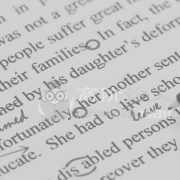爱尔兰古典文学论文代写:文学的力量
爱尔兰古典文学论文代写:文学的力量
首先,这两个文献的主题是相似的。他们都表达了宗教,绝望和绝望的战争,审查和沉默。他们失去了自由,担心他们所爱的人的安全。在“小学校”,叙述者想念她的女儿和她描述她的痛苦,通过这条线”…但是我不记得我女儿的脸上那巴士”(partony 79)。同样,在《安魂曲》中,讲述者花了17个月的时间在监狱外排队等候,担心她的儿子。可以清楚地看到,作者遭受了很多的精神折磨和耻辱,他们的心,因为他们想念他们的亲人,远离他们。在“小学校”的旁白给出了很多关于折磨她所面临的但她没有崩溃,她不怕被折磨的细节。另一方面,她害怕记住女儿的脸,因为那样会让她哭,她会失去勇气。所有这一切使我们意识到他们不仅遭受了身体的伤害失去了他们的自由。他们遭受精神创伤的状态,因为他们无法得到他们所爱的人的任何消息,也不关心他们作为人类的权利。
在安娜·阿赫玛托娃的诗歌中,主要的主题是对场景和宗教的描述。叙述者利用场景表达自己的情感。当叙述者的丈夫死了,她的儿子在监狱里,她描述了她的感觉,通过线条,“静静地流动安静的唐,到我的房子滑黄色的月亮”(阿赫玛托娃103)。
爱尔兰古典文学论文代写:文学的力量
Firstly, the themes on which these two literatures are based are similar. Both of them express the religion, the desperation and hopelessness of war, censorship and silencing. They lost their freedom, and are worried about the safety of their loved ones. In “The little School”, the narrator misses her daughter and she describes her pain through this line “…but I can’t remember my daughter’s face on that bus” (Partony 79). Similarly in “Requiem” the narrator has spent 17 months waiting in line outside the prison and is worried about her son. It can be clearly observed that the authors had suffered a lot of mental tortured and disgrace in their hearts as they missed their loved ones by being away from them. In “The Little School” the narrator gives a lot of details about the kind of tortures she had faced but she has not collapsed and she is not afraid of being tortured. On the other hand she was afraid to remember her daughter’s face because that will make her cry and she will lose her courage. All this makes us realize that they had not only suffered with physical harm by losing their freedom. They have suffered from state of mental trauma as they were unable to get any news of their loved ones and with no concern for their rights as human beings.
In Anna Akhmatova’s poem, the main theme was of the description of the scenes and religion. The narrator makes use of a scene for expressing her emotions. When narrator’s husband died and her son was in jail she describes her feeling through the lines as, “Quietly flows the quiet Don; into my house slips the yellow moon” (Akhmatova 103).








